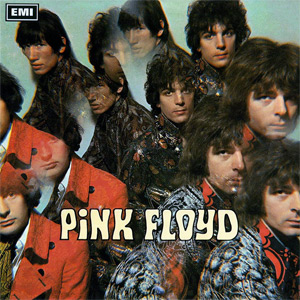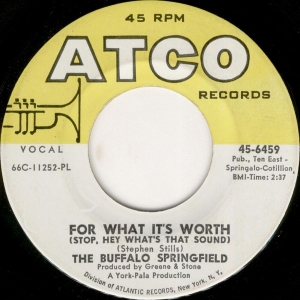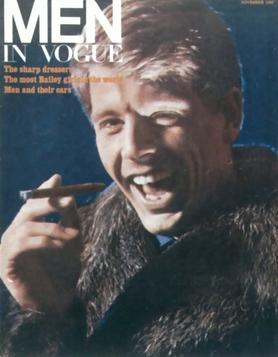
Ultra was the designation adopted by British military intelligence in June 1941 for wartime signals intelligence obtained by breaking high-level encrypted enemy radio and teleprinter communications at the Government Code and Cypher School (GC&CS) at Bletchley Park. Ultra eventually became the standard designation among the western Allies for all such intelligence. The name arose because the intelligence obtained was considered more important than that designated by the highest British security classification then used and so was regarded as being Ultra Secret. Several other cryptonyms had been used for such intelligence.

"Yankee Doodle" is a traditional song and nursery rhyme, the early versions of which predate the Seven Years' War and American Revolution. It is often sung patriotically in the United States today. It is the state anthem of Connecticut. Its Roud Folk Song Index number is 4501. The melody is thought to be much older than both the lyrics and the subject, going back to folk songs of Medieval Europe.

Christian Ernest Dior was a French fashion designer, best known as the founder of one of the world's top fashion houses, Christian Dior SE, which is now owned by parent company LVMH. His fashion houses are known all around the world, having gained prominence "on five continents in only a decade."

Dame Barbara Mary Quant was a British fashion designer and fashion icon. She became an instrumental figure in the 1960s London-based Mod and youth fashion movements, and played a prominent role in London's Swinging Sixties culture. She was one of the designers who took credit for the miniskirt and hotpants. Ernestine Carter wrote: "It is given to a fortunate few to be born at the right time, in the right place, with the right talents. In recent fashion there are three: Chanel, Dior, and Mary Quant."

The Piper at the Gates of Dawn is the debut studio album by English rock band Pink Floyd, released on 5 August 1967 by EMI Columbia. It is the only Pink Floyd album made under the leadership of founding member Syd Barrett ; he wrote all but three tracks, with additional composition by members Roger Waters, Nick Mason (drums), and Richard Wright. The album followed the band's influential performances at London's UFO Club and their early chart success with the 1967 non-album singles "Arnold Layne" and "See Emily Play".

Dame Lesley Lawson is an English model, actress, and singer, widely known by the nickname Twiggy. She was a British cultural icon and a prominent teenaged model during the swinging '60s in London.

Rude boy is a slang term for a subculture that originated from 1960s Jamaican street culture. In the late 1970s, there was a revival in England of the terms rude boy and rude girl, among other variations like rudeboy and rudebway, being used to describe fans of two-tone and ska. This revival of the subculture and term was partially the result of Jamaican immigration to the UK and the so-called ”Windrush” generation. The use of these terms moved into the more contemporary ska punk movement as well. In the UK and especially Jamaica, the terms rude boy and rude girl are used in a way similar to gangsta, yardie, or badman.

The Swinging Sixties was a youth-driven cultural revolution that took place in the United Kingdom during the mid-to-late 1960s, emphasising modernity and fun-loving hedonism, with Swinging London denoted as its centre. It saw a flourishing in art, music and fashion, and was symbolised by the city's "pop and fashion exports", such as the Beatles, as the multimedia leaders of the British Invasion of musical acts; the mod and psychedelic subcultures; Mary Quant's miniskirt designs; popular fashion models such as Twiggy and Jean Shrimpton; the iconic status of popular shopping areas such as London's King's Road, Kensington and Carnaby Street; the political activism of the anti-nuclear movement; and the sexual liberation movement.

A Dandie Dinmont Terrier is a small Scottish dog breed in the terrier family. The breed has a very long body, short legs, and a distinctive topknot of hair on the head. They are friendly but tough, and are suitable for interaction with older children. There are breed-specific health concerns: they can be affected by spinal problems due to their elongated body, and the breed is affected by canine cancer at a higher than average rate.

Mod, from the word modernist, is a subculture that began in London and spread throughout Great Britain and elsewhere, eventually influencing fashions and trends in other countries, and continues today on a smaller scale. Focused on music and fashion, the subculture has its roots in a small group of stylish London-based young men in the late 1950s who were termed modernists because they listened to modern jazz. Elements of the mod subculture include fashion ; music and motor scooters. In the mid-1960s, the subculture listened to rock groups with mod following, such as the Who and Small Faces, after the peak Mod era. The original mod scene was associated with amphetamine-fuelled all-night jazz dancing at clubs. One notably instrumental figure in the movement's origins was British fashion designer Mary Quant.

Tara Browne was a London-based Irish socialite and heir to the Guinness fortune. His December 1966 death in a car crash was an inspiration for the Beatles' song "A Day in the Life".

Face to Face is the fourth studio album by the English rock band the Kinks, released in October 1966. The album marked a shift from the hard-driving style of beat music that had catapulted the group to international acclaim in 1964, instead drawing heavily from baroque pop and music hall. It is their first album consisting entirely of Ray Davies compositions, and has also been regarded by critics as one of rock's first concept albums. Davies' blossoming songwriting style became increasingly observational and satirical, commenting on English culture, social class and the music industry.

"For What It's Worth " is a song written by Stephen Stills. Performed by Buffalo Springfield, it was recorded on December 5, 1966, released as a single on Atco Records in December 1966 and peaked at No. 7 on the Billboard Hot 100 chart in the spring of 1967.
Christopher Hibbert MC was an English author, popular historian and biographer.

"Mr. Soul" is a song recorded by the Canadian-American rock band Buffalo Springfield in 1967. It was released June 15, 1967, as the B-side to their fourth single "Bluebird" and later included on the group's second album Buffalo Springfield Again.
John Stephen, dubbed by the media "The £1m Mod" and "The King Of Carnaby Street", was one of the most important fashion figures of the 1960s.

Granny Takes a Trip was a boutique opened in February 1966 at 488 Kings Road, Chelsea, London, by Nigel Waymouth, his girlfriend Sheila Cohen and John Pearse. The shop, which was acquired by Freddie Hornik in 1969, remained open until the mid-1970s and has been called the "first psychedelic boutique in Groovy London of the 1960s".

Men in Vogue was a British magazine of male fashion from the same publishers as Vogue. It was first published in 1965, and ceased publication in 1970. The magazine was closely associated with the "peacock revolution" in English men's fashion in the 1960s for which Christopher Gibbs, an editor of the shopping guide in Men in Vogue, was a style leader with his "louche dandyism". Other editors of the magazine were Robert Harling and Beatrix Miller.
Dandie Fashions or sometimes Dandy Fashions was a London fashion boutique founded in 1966, following a chance encounter at the Speakeasy Club between Freddie Hornik and Alan Holston, who then got together with Australian John Crittle, the Guinness heir Tara Browne and Neil Winterbotham, and launched the new business.
Kenneth Malcolm John Crittle was an Australian fashion designer and retailer, a co-founder of Dandie Fashions in 1966.















